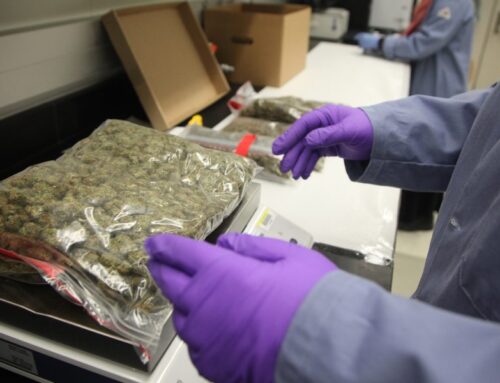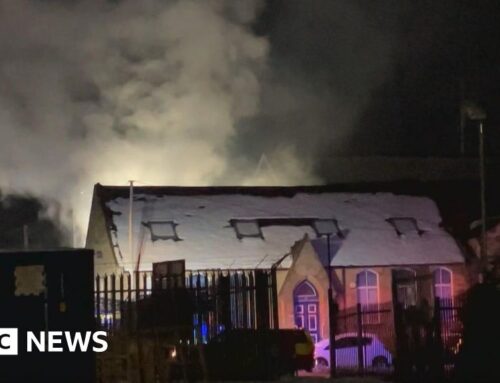Kentucky Governor Touts Medical Marijuana Progress And Stresses Cannabis Will Be Available To Patients ‘This Year’
January 9, 2025
The governor of Kentucky is promoting his administration’s work to legalize medical marijuana, emphasizing in his State of the Commonwealth address on Wednesday that patients will have access to cannabis “this year.”
As the state carries out final inspections of medical marijuana businesses that have been awarded various licenses, Gov. Andy Beshear (D) reflected on Kentucky’s progress on the issue during his speech.
“In 2024, we also worked to prepare our Commonwealth for medical cannabis,” he said. “Kentuckians that live every day in pain or in misery, they deserve this medication. Veterans suffering from PTSD, they deserve relief.”
“And because we all worked together, our people will be able to secure safe, regulated medical cannabis right here in Kentucky this year,” the governor said.
The comments in the speech come just one day after Beshear shared tips for patients to find a doctor and get registered to participate in the cannabis program..
The governor also gave an update on the status of the Commonwealth’s forthcoming program, noting that 760 Kentuckians have so far applied for a medical card through an online portal that launched last week.
The Office of Medical Cannabis (OCM) has 30 days to review applications it receives. It’s unclear when exactly dispensaries will open, but the governor stressed that there’s a “desire by everyone to move the process as quickly as we can to get supply on the shelves.”
Health practitioners have been able to start assessing patients for recommendations since the beginning of December, and over 3,300 Kentuckians have sought out such consultations in the weeks since.
While there currently aren’t any up-and-running dispensaries available to patients, Beshear further affirmed that an executive order he signed in 2023 will stay in effect in the interim, protecting patients who possess medical cannabis purchased at out-of-state licensed retailers.
After holding two licensing lotteries, Kentucky regulators have so far approved about 50 medical cannabis dispensaries throughout the state.
Meanwhile, during the November election, Kentucky saw more than 100 cities and counties approve local ordinances to allow medical cannabis businesses in their jurisdictions. The governor said the election results demonstrate that “the jury is no longer out” on the issue that is clearly supported by voters across partisan and geographical lines.
Separately, the federal Bureau of Alcohol, Tobacco, Firearms and Explosives (ATF) recently warned Kentucky residents that, if they choose to participate in the state’s medical marijuana program, they will be prohibited from buying or possessing firearms under federal law.
Beshear also said last month that the state could potentially move toward legalizing recreational marijuana as a next step if officials can “prove” that the new medical marijuana program is effectively regulated and protects public safety.
“I think that the way the system is being set up is going to be one that is safe,” he said. “You know, I’m a former attorney general. I wanted to do this in a way to where we regulate it. The office that’s been created has done a really good job.”
As far as his personal views are concerned, the governor said in 2021 that he supported a bill that would end marijuana criminalization altogether.
Beshear also signed a bill last year that moved the medical cannabis licensing timetable ahead six months to allow the market to launch earlier. And regulators received about 5,000 applications for medical marijuana business licenses since opening up a two-month window that ended in October.
All told, Kentucky took in nearly $28 million in non-refundable application fees during that two-month period.
In June, the governor also announced that the state Board of Medical Licensure and Board of Nursing would simultaneously start issuing permits for doctors and nurses to issue medical cannabis recommendations to patients beginning in July.
Beshear separately participated in a historic roundtable discussion at the White House in March alongside Vice President Kamala Harris and pardon recipients who received clemency under President Joe Biden’s pardon proclamations.
After Biden issued his first pardon proclamation in 2022, Beshear said he was “actively considering” possible marijuana clemency actions the state could take and encouraged people to petition for relief in the interim.
In July, Beshear filed a federal comment in support of the Biden administration’s marijuana rescheduling proposal, saying the reform will have “substantial and meaningful impacts” on patients, communities, businesses and research.
The governor has separately urged lawmakers to expand the medical marijuana program, announcing last year that two independent advisory groups he appointed unanimously voted to recommend the addition of more than a dozen new conditions to qualify patients for medical cannabis.
—
Marijuana Moment is tracking hundreds of cannabis, psychedelics and drug policy bills in state legislatures and Congress this year. Patreon supporters pledging at least $25/month get access to our interactive maps, charts and hearing calendar so they don’t miss any developments.
Learn more about our marijuana bill tracker and become a supporter on Patreon to get access.
—
Meanwhile, the state legislature delivered a budget bill to the governor in 2023 that includes a provision restricting funding for the medical cannabis regulatory body overseeing the state program until its advisory board determines there’s a “propensity” of research supporting the therapeutic “efficacy” of cannabis.
Last year, Kentucky lawmakers filed marijuana legislation with a notable bill number: HB 420. If passed, it would have legalized and regulated cannabis for adults 21 and older, though it did not advance in the state’s Republican-controlled legislature this session.
A more limited legalization measure, HB 72, was also introduced by Rep. Nima Kulkarni (D). It would end all penalties for simple possession and use of marijuana by adults 21 and older and also allow adults to grow a small number of cannabis plants at home. Commercial sales, however, would remain prohibited. It too died, however.
In 2023, Kulkarni introduced a measure that would have let voters decide whether to legalize use, possession and home cultivation. The lawmaker previously introduced a similar noncommercial legalization proposal for the 2022 legislative session.
Photo courtesy of Philip Steffan.
Search
RECENT PRESS RELEASES
Related Post




